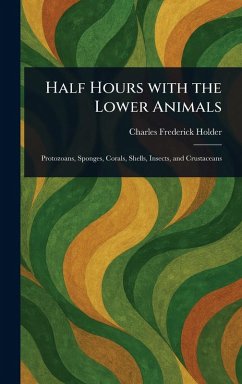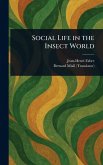Delve into the fascinating world of invertebrates with Charles Frederick Holder's "Half Hours With the Lower Animals." This engaging exploration of the natural world examines the intricate lives of protozoans, sponges, corals, shells, insects, and crustaceans. A classic work of natural history, this volume offers a comprehensive overview of these often-overlooked creatures. Holder, a celebrated naturalist, brings his expertise to bear in describing the diverse characteristics and behaviors of these animals. Explore the fundamental science of zoology and the captivating realm of invertebrates through detailed descriptions and insightful observations. From the simplest protozoans to the complex social structures of insects, this book provides a broad understanding of the animal kingdom. A timeless resource for anyone interested in nature and the science of life. This work has been selected by scholars as being culturally important, and is part of the knowledge base of civilization as we know it. This work is in the public domain in the United States of America, and possibly other nations. Within the United States, you may freely copy and distribute this work, as no entity (individual or corporate) has a copyright on the body of the work. Scholars believe, and we concur, that this work is important enough to be preserved, reproduced, and made generally available to the public. We appreciate your support of the preservation process, and thank you for being an important part of keeping this knowledge alive and relevant.
Bitte wählen Sie Ihr Anliegen aus.
Rechnungen
Retourenschein anfordern
Bestellstatus
Storno









